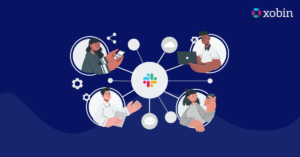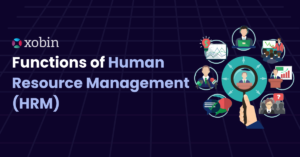The talent landscape is changing faster than ever. Employers today face a widening gap between the skills graduates possess and the capabilities modern job roles demand. While certain future-proof degrees are becoming gateways to innovation and employability, many outdated qualifications fail to align with digital transformation, automation, and AI-driven workflows. This blog explores what today’s workforce truly needs and what leaders must prioritize to stay competitive.
Table of Contents
TL;DR – Key Takeaways!
- Future-proof degrees focus on skills such as AI, data, cybersecurity, sustainability, and human-centered problem-solving.
- Outdated qualifications fall short due to rigid curricula, low industry relevance, and slow adaptation to emerging technologies.
- Employers increasingly prioritize skills-first hiring, micro-credentials, continuous learning, and job-ready experience over traditional degrees.
- CHROs and CEOs must rethink hiring strategies to align with future skills and close the capability gap.
- Platforms like Xobin help companies evaluate real-world skills objectively using AI-powered assessments.
Why the Degree Debate Matters Today
The conversation around future-proof degrees vs. outdated qualifications are not abstract, it’s a board-level priority. Global industries are undergoing unprecedented digital disruption, automation is displacing routine work, and AI is redefining how companies operate.
However, most traditional degrees were not designed for this new reality. Their slow update cycles leave graduates underprepared and businesses struggling with skills shortages.
Moreover, skills-first recruiting continues to gain momentum, with tech and non-tech sectors shifting their focus from pedigree to actual capability, an approach validated by industry studies and hiring trends.

Future-Proof Degrees: What Sets Them Apart
Future-proof degrees share one thing in common: they equip learners with adaptive, interdisciplinary, and technology-driven competencies.
1. Degrees Aligned with Emerging Technologies
Fields such as Artificial Intelligence, Machine Learning, Data Science, Robotics, and Cloud Computing are directly tied to rapid enterprise adoption of technology. These programs emphasize analytical thinking, automation literacy, and algorithmic reasoning, skills now indispensable across industries.
Additionally, organizations expect employees to work seamlessly with AI and augmentation tools. A graduate with knowledge of automation frameworks or generative AI concepts is more job-ready than one relying solely on theoretical knowledge.
2. Programs Focused on Cybersecurity & Digital Infrastructure
Cybersecurity roles continue to grow exponentially as data becomes the backbone of modern business operations. Degrees in cybersecurity, digital forensics, ethical hacking, and network security empower talent to safeguard sensitive information, a top priority for enterprises undergoing digital transformation.
3. Degrees Grounded in Sustainability & Global Challenges
Fields like Environmental Science, Renewable Energy Engineering, and Sustainable Development are rising rapidly as businesses commit to ESG (Environmental, Social, Governance) standards. Sustainability compliance and green innovation create new workforce demands.
4. Human-Centered & Creative Disciplines
Surprisingly to some, degrees in psychology, behavioral science, UX design, and communication are also future-proof. Human-machine interaction, employee well-being, and experience design are becoming differentiators in high-performing organizations.
These degrees build competencies in empathy, critical thinking, storytelling, and problem-framing, skills AI cannot replace.
Did You Know?
Future-proof degrees are not defined by specific subjects alone but by their emphasis on solving tomorrow’s problems with today’s technologies.
Outdated Qualifications: What Holds Them Back
Not all degrees prepare graduates for today’s workforce realities. Outdated programs typically suffer from:
1. Stagnant, Theory-Heavy Curricula
Many traditional degrees haven’t updated their content in decades. When students learn outdated tools, frameworks, or methodologies, their transition to the workplace becomes difficult.
For example, business graduates trained in outdated management models may struggle with agile, tech-first operating structures.
2. Minimal Industry Integration
Degrees lacking internships, hands-on projects, or real-world exposure produce graduates with conceptual understanding but little practical capability. This increases employers’ onboarding and training costs.
3. Limited Technological Relevance
Degrees that ignore digital literacy, analytics, or tech-driven workflows risk becoming obsolete. Industries expect graduates to wield digital tools confidently, even in non-tech roles.
4. Lack of Interdisciplinary Learning
Modern jobs blur the lines between functions. Outdated programs often teach in silos, ignoring the intersection of data, technology, creativity, and human behavior.
Want to evaluate true job-ready skills? Use Xobin’s AI-driven assessments to identify high-potential candidates instantly!
Book A DemoWhat Today’s Workforce Really Needs: Skills that Outperform Degrees
To thrive in the future workforce, employees need adaptive, digital, and human-centered capabilities. Today’s hiring leaders consistently prioritize the following:
1. Digital & AI Literacy
Employees must understand how AI works, how to use productivity and automation tools, and how to collaborate with augmented systems. AI literacy is now as fundamental as computer literacy was in the early 2000s.
2. Problem Solving & Analytical Thinking
These are top skills globally. Future-ready talent must navigate ambiguity, interpret data, and make evidence-driven decisions.
3. Flexibility & Continuous Learning
With industries evolving at breakneck speed, agility is non-negotiable. Workers must embrace micro-credentials, certifications, and upskilling throughout their careers.
4. Human Skills: Communication, Collaboration, Leadership
Paradoxically, as technology grows, human skills matter more. Roles demanding empathy, negotiation, and strategic thinking will remain difficult to automate.
5. Domain-Specific Competencies
Whether in finance, engineering, healthcare, or marketing, contextual expertise is crucial. However, it must be paired with digital adaptability to stay relevant.
The Shift to Skills-First Hiring (And Why Degrees Alone No Longer Matter)
According to leading hiring trend reports, organizations are increasingly embracing skills-based hiring, where capability > qualification. Cloud, cybersecurity, and AI talent shortages have accelerated this shift.
Skills-first recruitment enables:
- Access to broader and more diverse talent pools
- Better job-role alignment
- Reduced bias through structured assessment
- Faster hiring and better long-term retention
Employers are leaning on skill-based assessments, coding simulators, psychometric tests, and portfolio-based hiring to validate job readiness objectively.

Hire for Skills Using Xobin!
The workforce of tomorrow will be shaped not by traditional degrees alone, but by skills, adaptability, and continuous learning. Future-proof degrees will continue to evolve but what matters most is whether talent can apply knowledge in real-world, tech-driven environments.
Organizations that adopt skills-based recruiting, encourage upskilling, and use reliable evaluation tools will stay competitive, innovative, and agile.
To build a workforce ready for tomorrow’s challenges, equip your hiring process with objective, AI-powered talent assessment software.
To navigate a world where degrees vary widely in relevance, Xobin empowers hiring teams to measure skills, capabilities, and job readiness with precision.
With 3,400+ role-specific skill tests, AI-based scoring, psychometric profiling, and coding simulators, Xobin enables organizations to evaluate what candidates can actually do, not just what they studied.
Key benefits include:
- AI-powered assessment building based on job descriptions
- Objective evaluations through automated scoring and proctoring
- Video assessments capturing communication and soft skills
- In-depth behavioral insights using validated psychometric models
- Actionable reports for confident decision-making
By focusing on verified competencies, Xobin helps organizations future-proof hiring regardless of how rapidly degrees evolve. Book a personalized demo with Xobin today and discover how to hire for skills, not just degrees.
FAQs
1. What makes a degree “future-proof”?
A future-proof degree focuses on technology, critical thinking, and interdisciplinary learning. It equips graduates with competencies that align with emerging industry needs, such as AI, data, sustainability, and human-centered design.
2. Which degrees are becoming outdated?
Degrees with stagnant curricula, minimal tech integration, or limited hands-on exposure are increasingly outdated. Employers now expect digital literacy and industry-aligned learning.
3. Are employers shifting away from degree-based hiring?
Yes. Skills-first hiring is accelerating across industries. Companies use assessments, portfolios, and certifications to validate capability rather than relying solely on degrees.
4. What skills matter most in today’s workforce?
Digital literacy, problem-solving, communication, adaptability, and domain-specific expertise are critical. Continuous upskilling is essential to remain relevant.
5. How can companies evaluate skills effectively?
Platforms like Xobin offer AI-driven assessments, coding simulators, psychometric tests, and structured evaluation tools to measure real-world ability objectively.







